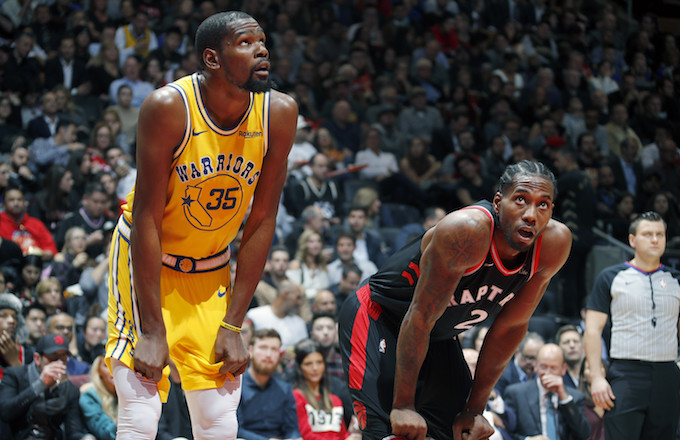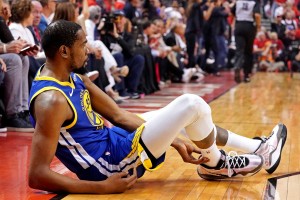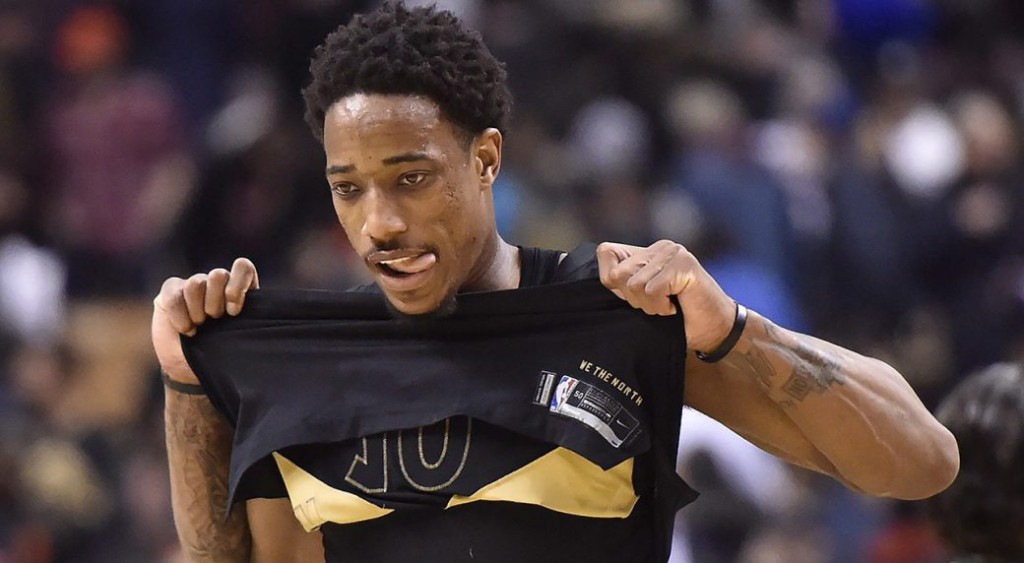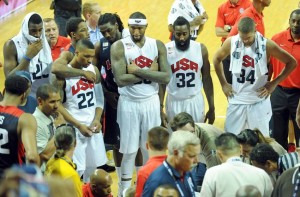He came out blazing!
For the opening minutes of Game 5 of the NBA Finals, you would have never known that Kevin Durant (KD) was dealing with what could be a career-ending injury.
He looked every bit the basketball phenom we have come to know. That is a combination of Bob McAdoo, George Gervin, and Dirk Nowitzki…only a better defender than either (did you see him at 7-foot stay in front of 6-foot guard Fred VanVleet?). Among non-centers, I consider KD to be the most difficult matchup for a defender in NBA history.
Then Achilles arose and that is where we are today. This week, Durant declined his $31.5 million option to remain with the Warriors, which makes him an unrestricted free agent. While it is still in doubt whether or not Durant will ever be what he once was, make no mistake that multiple NBA teams will be willing to roll the dice that he will and offer him a super max contract.
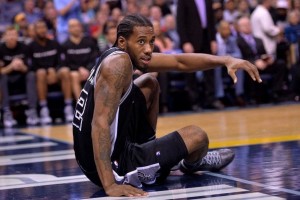 Last year at this time, when Kawhi Leonard refused to play due to his injury, his basic interest in the game of basketball was being questioned. As a result, the San Antonio Spurs, which many consider to be among the most stable franchises in all of sports, traded him. Today, after leading the Raptors to an NBA title, he has a legitimate claim to be the best player in the game. He is also now an unrestricted free agent and will get a super max deal.
Last year at this time, when Kawhi Leonard refused to play due to his injury, his basic interest in the game of basketball was being questioned. As a result, the San Antonio Spurs, which many consider to be among the most stable franchises in all of sports, traded him. Today, after leading the Raptors to an NBA title, he has a legitimate claim to be the best player in the game. He is also now an unrestricted free agent and will get a super max deal.
Overall, both KD and Kawhi get the last laugh…good for them. However, why do so many feel that it is their place to decide if someone is or is not hurt, and when a player should or should not play?
There are so many factors to be considered when it is determined if a professional athlete, less than 100%, should or should not play. Yet, rarely is there a narrative from us fans/media that considers all of those factors.
The most common line of thinking is something like this from a recent talk radio caller; “KD knew the risks and chose to play anyway. Professional athletes are obsessively competitive and always want to play, otherwise they likely would not have made it to this level. It is what they do. Those reading any more into this are over-analyzing. After all, one can walk outside and be struck by lightning”.
This vacuum analysis is based on the false premise that the decision to play was ultimately KD’s. That simply was not true. The ultimate decision maker is the organization. The vacuum of which I speak assumes that nothing external to KD’s line of thought drove the decision. The ridiculous and insulting notion that the Warriors are better without him was not a factor. Toxic masculinity, which exists in varying degrees on all male sports teams, that says, “You tough it out and play through injury”, was not a factor. The fact that the Warriors were down 3-1 and KD was their only viable hope of getting back into the series was not a factor. Finally, his pending free-agency option was not a factor.
Anyone that believes any of this is delusional beyond imagination.
Without going into the thinly-veiled homophobic tone of “he is soft”, there is the condescending arrogance that we know their bodies better than they do. Even the “ok” from team doctors is suspect because…he/she is the TEAM’S doctor and thus has an inherent conflict of interest. Also, just because people would have played hurt “back in the day” does not mean they should today. Once upon a time people worked without wages. That does not make it a valid consideration for labor today. Finally, there is the notion that because they make a lot of money, they should play short of being on a deathbed. In fact the opposite makes more sense. If we speak in terms of the professional athlete’s body being his most valuable commodity, then why would he risk compounding an injury by playing hurt?
One thing about the journey of KD and Kawhi is that they were both once considered low profile personalities. They were the humble, anti-showboat type of athletes that fans wanted to root for…that is until they did not provide the labor that was expected. Today, both are cautionary tales that despite all the fame and money, many fans, media, and especially owners see professional athletes as chattel.
Speaking of “owners”, this mindset is why NBA Commissioner Adam Silver, to his credit, is paying attention to the designation of “owner”. In a country where Black men were once literally property, and in a league where they make up nearly 75% of the players, referring to their “bosses” as owners should be more than a dog whistle. Of course, formal Chattel Slavery that once existed in America is no more. But as long as so many feel it their place to tell a grown man when he is and isn’t hurt, should or should not play, it will be a reminder that the slave owner’s mentality is in the present, alive and well.

